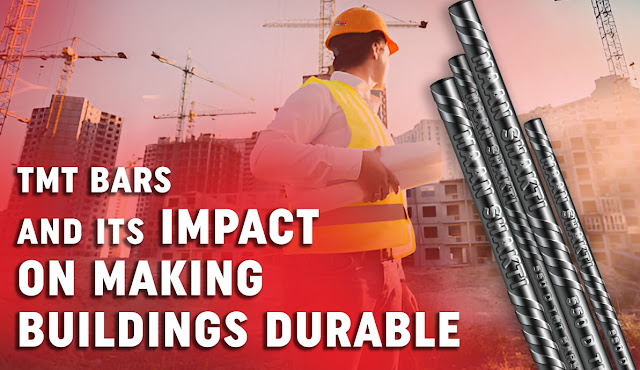Test the Difference: Finding the Best Quality TMT Bars
When it comes to construction projects, ensuring the use of high-quality materials is crucial for the structuralal integrity and longevity of the construction base. One such critical component is TMT (Thermo-Mechanically Treated) bars, which extensively reinforce concrete structures. With a variety of prevalent TMT bar brands in the market, it's essential to understand how to identify and choose the best quality TMT bars.
Let's explore the key
factors to consider and the tests you can perform to ensure you're selecting
the best quality bars for your construction needs.
Finding the Best Quality TMT bars
TMT bars are steel bars
that undergo a specialised manufacturing process involving controlled heating
and rapid cooling, which imparts superior strength, ductility, and corrosion
resistance to the bars. These qualities make TMT bars highly suitable for
construction projects, as they provide enhanced structural stability and
earthquake resistance.
To make sure you find the
best quality TMT bar for your construction project, here we come up with some
key factors and tests you can consider to choose the best one.
Consider the Grades and Standards:
TMT bars come in several
different grades, including Fe-415, Fe-500, and Fe-550, indicating their yield
strength in megapascals (MPa). Choose the grade based on the specific
requirements of your construction project, considering factors like the
load-bearing capacity, type of structure, and seismic zone. As per the IS
Standards, the best TMT steel manufacturer in West Bengal believes in
550 TMT bars for critical construction works.
Look For BIS Certification:
Start by ensuring that the TMT bars you choose comply with the standards set by the Bureau of Indian Standards (BIS). BIS certification ensures that TMT bars meet the required quality requirements and are manufactured using appropriate processes. So look for the BIS mark on the TMT bars' packaging or inquire about the certification from the manufacturer.
Perform Visual Inspection:
Perform a visual inspection of the TMT bars to identify any visible defects or irregularities. Look for uniformity in the surface texture, absence of cracks, and smoothness. Additionally, check for the manufacturer's brand, grade, and dimensions embossed on the bars. Any inconsistencies may indicate a compromise in quality.
Check the Weight and Dimensions:
Check the weight and
dimensions of the TMT bars to ensure they meet the specifications required for
your construction project. Several TMT bar manufacturers use a weighing
scale and a vernier caliper to measure the weight and dimensions accurately.
Compare the results with the manufacturer's specifications to verify
compliance.
Perform Tensile Strength Test:
The tensile strength test
measures the maximum load a TMT bar can bear before it breaks. This test
provides crucial information about the bar's ability to resist stretching and
withstand external forces. The tensile strength test is typically performed
using a Universal Testing Machine (UTM), but one can test up to 32 mm capacity
of TMT Bars without a machine as per IS 1786. After performing the test,
compare the test results with the specified values to ensure they meet the
required standards.
Go for the Yield Stress Test:
The yield stress test
measures the maximum stress level a TMT Bar can bear before deforming. The best
TMT steel manufacturers in West Bengal perform the test to determine a
yield point from where the TMT starts to deform elastically and return to its
original shape when the applied stress is removed. You can go for the yield
stress test to find out the best quality TMT bars.
Consider Bend and Rebend Test:
The bend and rebend test assesses the ductility and flexibility of TMT bars. Take a sample TMT bar and bend it manually at a 90-degree angle without any cracks or fractures. Then, rebend it in the opposite direction. If the TMT bar retains its shape without any signs of damage, it indicates good ductility and strength.
Perform Weldability Test:
If welding is required in
your construction project, consider performing a weldability test. It evaluates
the TMT bars' ability to form a sound and strong bond with other materials
during the welding process. A good quality TMT bar should exhibit excellent
weldability without any cracks or brittleness in the welded joint.
Wrapping It Up
Choosing the best quality
TMT bars for your construction projects is vital for the structural integrity
and safety of the building. By considering factors such as BIS certification,
grades, visual inspection, weight, and dimensions and performing different
tests, you can find out the best quality TMT bars for your construction work.




Great post! check primary steel manufactures.
ReplyDelete